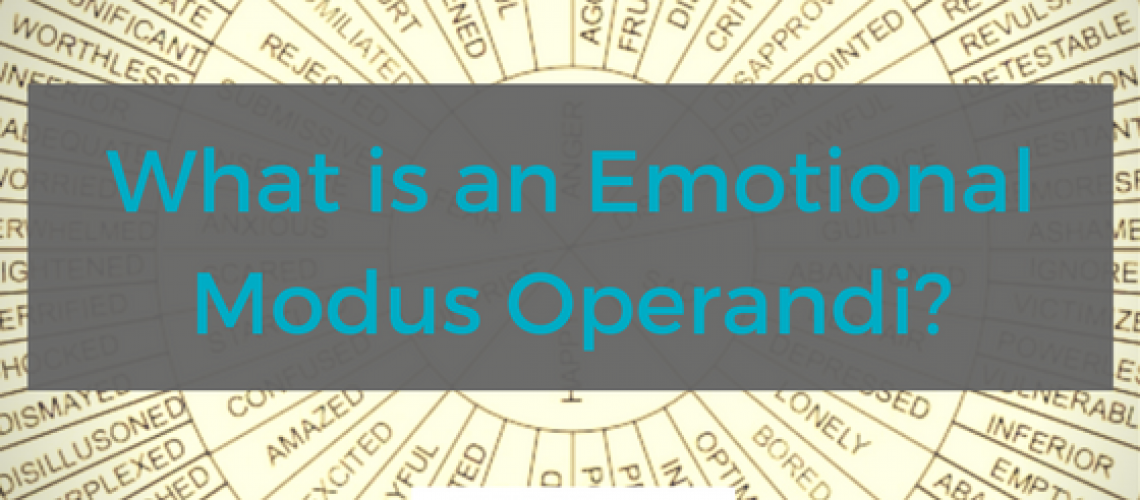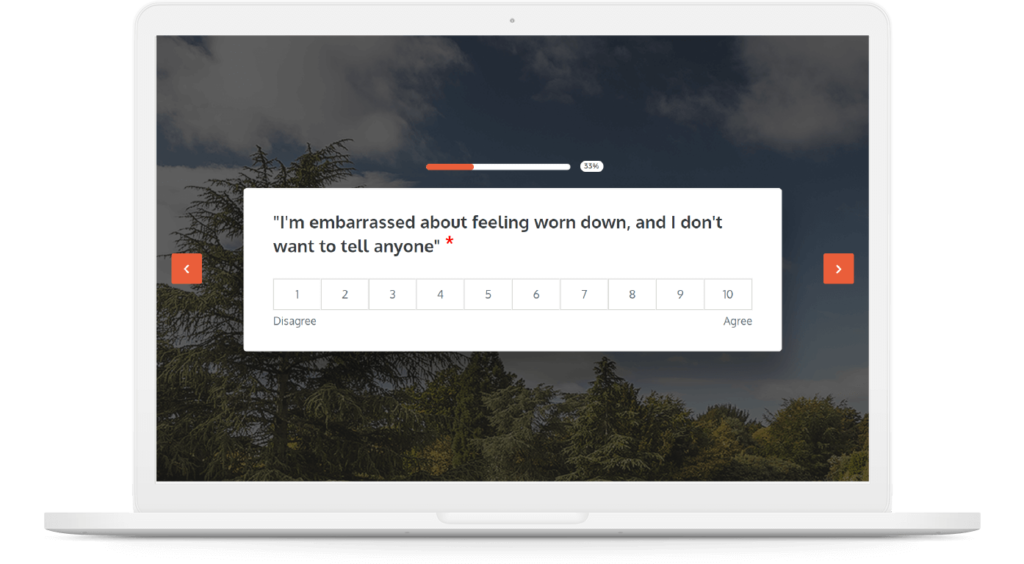People that have worked with me will recognise what I mean by an emotional M.O. (modus operandi). It refers to a particular way or method of doing something: the way a person operates or works.
We all have one and we are all born into one. It doesn’t have to remain fixed which is one of the cool things about therapy as it happens.
Identifying an emotional M.O. is looking at how everyone is born into a culture where certain feelings are acceptable or not. I’ve also called this the template (or the imprint); it’s really the pattern of what’s emotionally acceptable.
Some families will, for instance, have a modus operandi where there is no anger or confrontation, or no laughter, or we don’t grieve.
My belief is it’s really important to try to discover what that emotional template is because in my experience over the last 20 years, it is the single most powerful thing that stops people from recovering fully; when they have an M.O. which doesn’t allow them to have the full range of feelings.
When traumatised people come to me and their full range of feelings are not available to them, they have the hardest journey of recovery and the least chance of full recovery.
Sometimes the simplest of injunctions within the template can have a far-reaching effect when it comes to someone after traumatic events.
For instance, a family template of ‘we don’t cry’ deems full and fast recovery impossible.
I have met people who have not cried for literally years though they have experienced great loss.
Sadly, this inability to express grief has led them into a life of depression, constant irritation and even bitterness.
Without the tears, you cannot move through the process of grief. A no crying M.O. would insist this person will struggle with the tears they need to cry for what they’ve been through.
There are known health benefits to crying. Apart from the build-up of emotion being expressed it is also a way of reducing stress chemicals for those that are carried within tears.
One of my ways of helping people with this particular M.O., when there is real grief to deal with, is to help them understand crying is a bodily function, just like going for a wee; it just needs doing so you can get on with your next thing.
In the same vein, if you don’t go for the wee and you hold it until you’re bursting all you can think about is that you need to go for a wee. If you don’t find somewhere to go and let go of it, it becomes a mess.
If you don’t cry the tears, your tears and grief will be all consuming and will cause a mess in the long run.
I describe to people using the metaphor of walking around with buckets/pails of water. Let’s say you have two buckets of tears to cry in order for you to have the best chance of recovery. Every time you cry you don’t cry those same tears again, and it is a little less to carry around.
If you don’t find time you may find you will buckle you will buckle under the weight of having to carry around the buckets full of tears. It’s not because I want people to feel the agony of their grief but I do believe that if we don’t attend to it and get through it now, that agony will only grow.
However hard it is for people to face their grief, it saddens me more to think that by not getting through it now it will hinder them for the rest of their lives and at worst render them a sentence of private turmoil.
Other templates also get in the way of recovery which is why I set out with them to discover strengths and resilience within it. It’s not just the ‘difficult to feel feelings’ that get branded as not acceptable, like anger and grief, it can be all kinds of feelings.
Feelings like elation, joy and pride, maybe in your family’s emotional M.O. It may be not to allow celebration and pride and so there are those injunctions to discover too. We operate best and get the best performance from ourselves with the full range of feelings.
It is my belief that when we truly embrace the full range of feelings we actually feel less of the ‘difficult to feel feelings’, because we are not expending energy trying to suppress and ignore them.
Welcome to the full range of feelings
Now that I’ve mentioned the full range of feelings, I want to share what actually I mean by this.
To be fully human and fully available to one’s experience in life we must access and be open to a full range of feelings. That means feelings that we might label good or bad or we might label positive or negative.
If we access and notice and experience the full range of feelings life can be experienced with more ease and gratitude and positivity. In a climate where we do not veto certain feelings and we access the full range, the chances are that we will have positive experiences more available to us.
The greatest and most powerful part of the skills-kit for life is the embracing of our humanness and our susceptibility to the full range of feelings.
When we veto certain emotions, and do our damnedest to extricate them from our consciousness, it’s not as though they don’t exist at all, it’s that we turn a blind eye whilst actually the vetoed feelings have more control over us than we’d like.
When we are prepared to be open to experience, our feelings will have less power to disturb us. And what we might describe as positive feelings will have more power to revive us and lighten this.
If you’d like to read more about the full range of feelings, you can buy your own copy of my new book ‘Smile Again’ or sign up to get my latest updates sent straight to you, at the bottom of this page.




2 thoughts on “What is an Emotional Modus Operandi?”
Hi I am so thrilled I found your blog page, I really found you by accident, while I was looking on Bing for something else, Nonetheless I am here now and would just like to say cheers for a incredible post and a all round thrilling blog (I also love the theme/design), I don’t have time to read through it all at the minute but I have book-marked it and also included your RSS feeds, so when I have time I will be back to read much more, Please do keep up the awesome b.
http://healthclue.eu
Hello there,
A HUGE thank you for your patience and your message. It’s great to hear some of my work is ‘sticky’ and useful! Do stick around there is more to come.
Kind regards
Anna